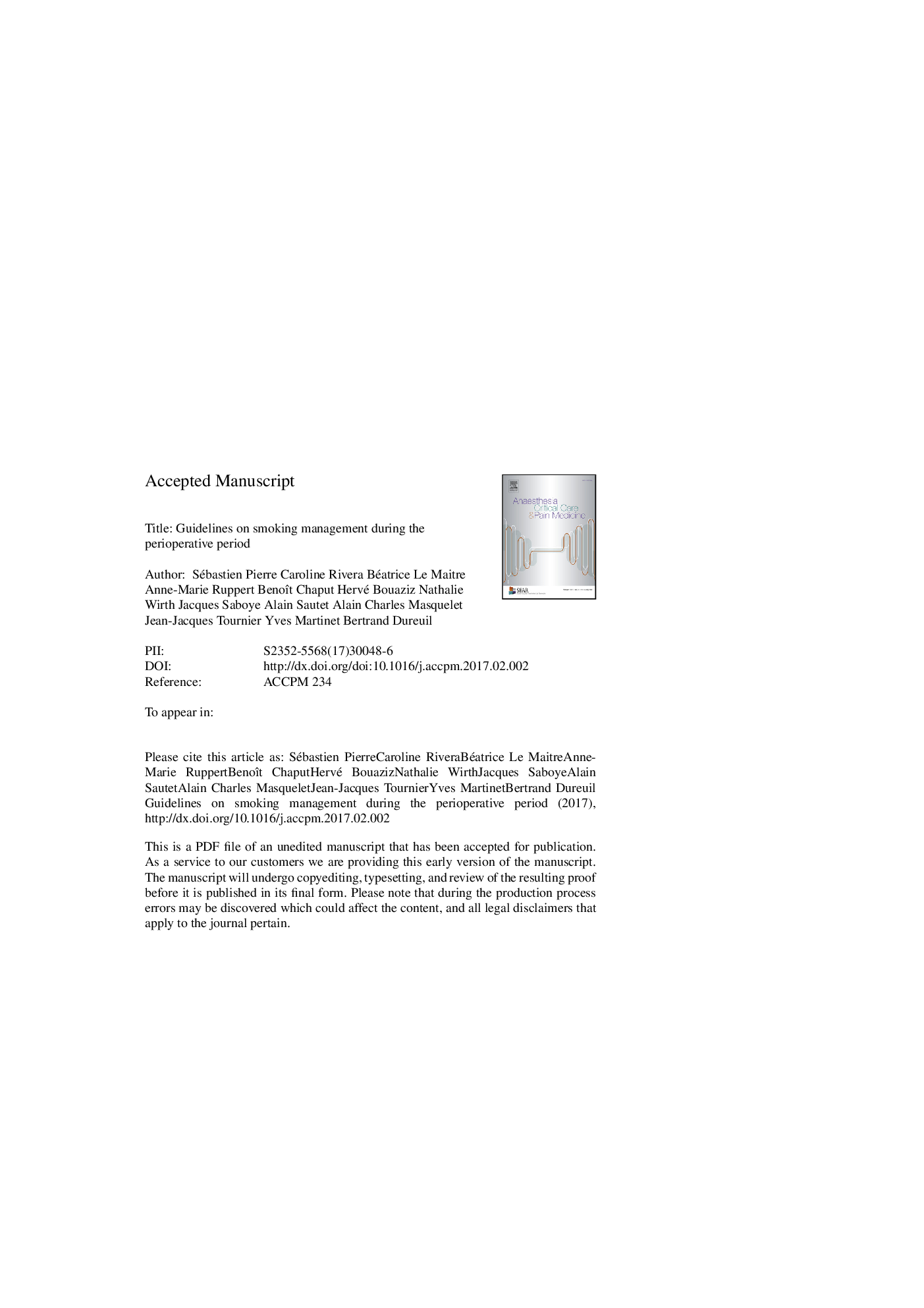| Article ID | Journal | Published Year | Pages | File Type |
|---|---|---|---|---|
| 8609489 | Anaesthesia Critical Care & Pain Medicine | 2017 | 34 Pages |
Abstract
Smoking is a public health problem of particular importance during the perioperative period, since it exposes patients scheduled for surgery to risk increases of 20% in hospital mortality and 40% in major postoperative complications. In addition, current smoking increases almost all specific surgical complications. The perioperative period offers a genuine opportunity for smoking cessation. The rate of preoperative smoking cessation can be increased significantly by offering behavior management and the prescription of a nicotine substitute before any scheduled surgical intervention. Preoperative smoking cessation should be routinely recommended independently of the timing of the intervention, even though the benefits increase in proportion with the length of cessation. All professionals of the care pathway (general practitioners, surgeons, anesthetists-intensivists, caregivers) must inform smokers of the positive effects of smoking cessation and offer them dedicated management and personalized follow-up. In children, cessation of parental smoking or removal of the child from environmental tobacco smoke as long before surgery as possible is indispensable.
Related Topics
Health Sciences
Medicine and Dentistry
Anesthesiology and Pain Medicine
Authors
Sébastien Pierre, Caroline Rivera, Béatrice Le Maître, Anne-Marie Ruppert, Hervé Bouaziz, Nathalie Wirth, Jacques Saboye, Alain Sautet, Alain Charles Masquelet, Jean-Jacques Tournier, Yves Martinet, Benoît Chaput, Bertrand Dureuil,
